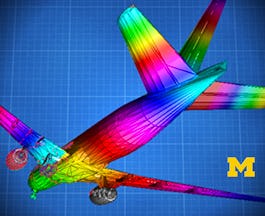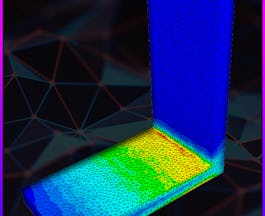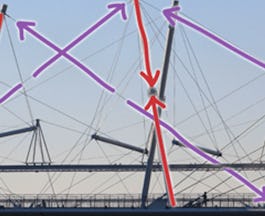Filter by
The language used throughout the course, in both instruction and assessments.
Explore the Finite Element Course Catalog

University of Michigan
Skills you'll gain: Algebra, Continuous Integration, Critical Thinking, Problem Solving, Computer Programming

Coursera Project Network

Coursera Project Network
 Status: Free
Status: FreeGeorgia Institute of Technology
 Status: Free
Status: FreeLudwig-Maximilians-Universität München (LMU)
Skills you'll gain: Differential Equations, Mathematical Theory & Analysis, Mathematics, Computer Programming, Python Programming, Problem Solving, Applied Mathematics, Computational Thinking, Linear Algebra, Scientific Visualization

Dartmouth College
 Status: Free
Status: FreeGeorgia Institute of Technology
Skills you'll gain: Feature Engineering, Geometry, Material Handling, Critical Thinking, Scientific Visualization
 Status: Free
Status: FreeGeorgia Institute of Technology
 Status: Free
Status: FreeUniversity of California, Davis
 Status: Free
Status: FreeBirla Institute of Technology & Science, Pilani
Skills you'll gain: Mathematics
 Status: Free
Status: FreeScrimba
Skills you'll gain: Computer Programming, HTML and CSS, Web Design
 Status: Free
Status: FreeUniversity of California, Irvine
Skills you'll gain: Project Management, Leadership and Management, Planning
In summary, here are 10 of our most popular finite element courses
- The Finite Element Method for Problems in Physics: University of Michigan
- Finite Element Analysis Convergence and Mesh Independence: Coursera Project Network
- FEM - Linear, Nonlinear Analysis & Post-Processing: Coursera Project Network
- Mechanics of Materials I: Fundamentals of Stress & Strain and Axial Loading: Georgia Institute of Technology
- Computers, Waves, Simulations: A Practical Introduction to Numerical Methods using Python: Ludwig-Maximilians-Universität München (LMU)
- The Engineering of Structures Around Us: Dartmouth College
- Mechanics of Materials III: Beam Bending: Georgia Institute of Technology
- Mechanics of Materials II: Thin-Walled Pressure Vessels and Torsion: Georgia Institute of Technology
- Materials Science: 10 Things Every Engineer Should Know: University of California, Davis
- Basic Mathematics: Birla Institute of Technology & Science, Pilani










